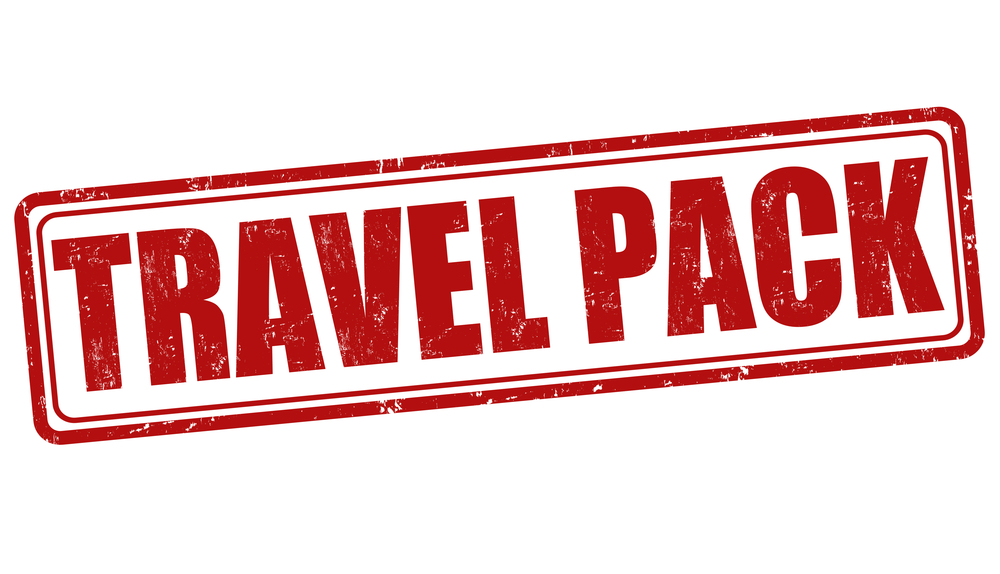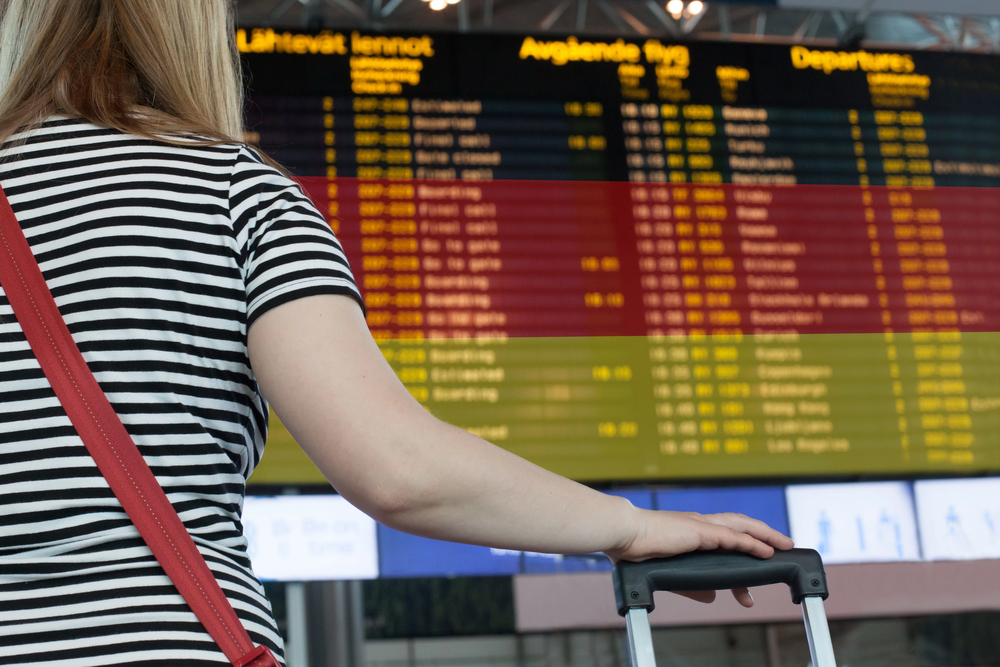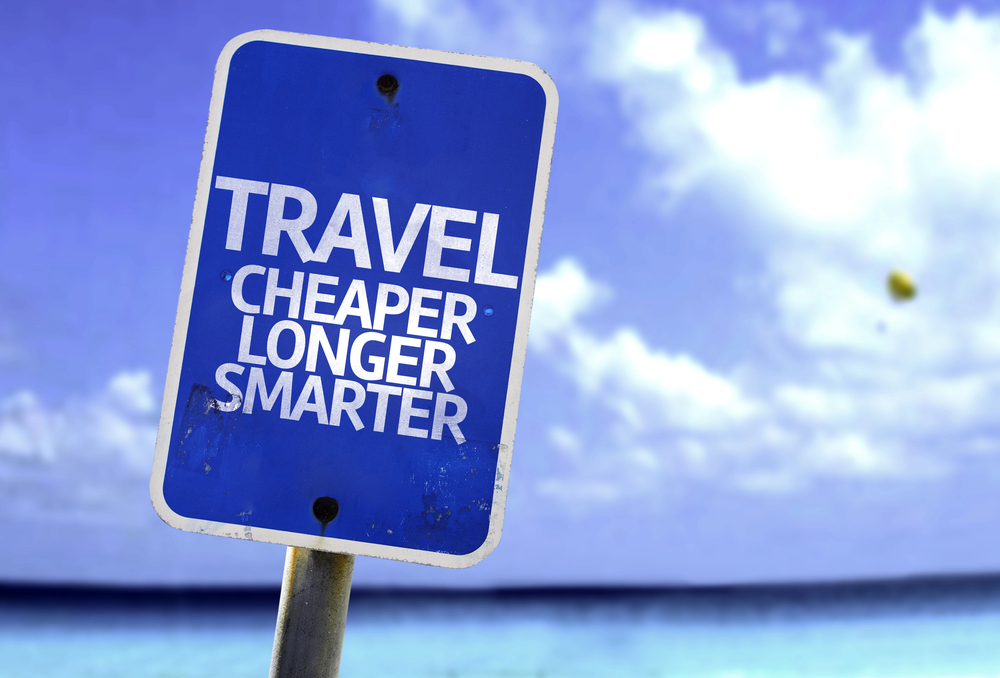Smart travelers know that seeing the world doesn’t require unlimited funds—it just requires creativity and strategic planning. The difference between budget-conscious travel and cheap travel lies in knowing where to splurge and where to save without sacrificing memorable experiences.
Modern technology and changing travel patterns have created new opportunities for savvy travelers to access luxury experiences at a fraction of the price. Here is a list of 17 ways to maximize your travel dollar while still creating the kind of trips you’ll remember forever.
Travel During Shoulder Seasons

Popular destinations offer dramatically lower prices during periods just before or after peak season, often with weather that’s nearly as good as premium months. European cities in late spring provide perfect walking weather without summer’s crushing crowds, while Caribbean islands in late fall offer warm temperatures and significantly lower accommodation costs.
Shoulder season travel also means shorter lines at major attractions and more authentic interactions with locals who aren’t overwhelmed by tourist hordes. The key is researching specific destinations to understand when shoulder seasons offer the best value without major drawbacks.
Book Accommodations with Kitchen Access

Vacation rentals and extended-stay hotels with kitchenettes allow travelers to prepare some meals while still experiencing local dining culture. Shopping at local markets becomes part of the travel experience rather than just a money-saving necessity, and you’ll often discover ingredients and products that don’t exist back home.
Preparing breakfast and lunch gives you more budget flexibility for memorable dinners at restaurants you actually want to try. Kitchen access also provides convenience for dietary restrictions and late-night snacks without expensive room service charges.
Like Travel Pug’s content? Follow us on MSN.
Use Public Transportation Like a Local

Most major cities offer tourist passes that combine unlimited public transit with museum admissions and other attractions at significant discounts compared to individual purchases. Learning local transit systems provides authentic cultural experiences while saving money on expensive taxi rides and tour buses.
Many cities feature scenic public transportation routes that offer better views than expensive sightseeing tours, like San Francisco’s cable cars or Istanbul’s ferry system. Public transit also forces you to navigate like locals do, often leading to unexpected discoveries and genuine neighborhood experiences.
Book Flights with Long Layovers

Extended layovers in interesting cities essentially provide free mini-vacations, especially when airlines offer free hotel stays for longer connections. Many major airports now offer city tours for travelers with layovers exceeding certain time limits, turning necessary stops into bonus destinations.
Strategic layover planning can allow you to visit three countries for the price of one international ticket, though this requires careful research of visa requirements and minimum connection times. Some travelers intentionally book complex routes with multiple stops to maximize destinations while paying less than what direct flights would cost.
Stay in Alternative Accommodations

Monasteries, university dorms during summer breaks, and working farms often provide unique lodging experiences at budget-friendly prices. These accommodations offer cultural immersion opportunities that traditional hotels can’t match, like participating in morning prayers or learning about sustainable agriculture.
Many alternative stays include meals or activities in their rates, providing better overall value than seemingly cheaper hotels that nickel-and-dime guests for everything. The key is researching these options early since availability is often limited and they don’t appear on standard booking platforms.
Like Travel Pug’s content? Follow us on MSN.
Take Advantage of Free Walking Tours

Tip-based walking tours in most major cities provide excellent historical and cultural overviews while allowing you to pay based on your budget and satisfaction level. These tours often reveal hidden neighborhoods and local stories that expensive private guides share with their clients, since many tour leaders are locals passionate about their cities.
Free tours also help you orient yourself on the first day of your trip, making the rest of your stay more efficient and enjoyable. The best free tour guides often provide restaurant recommendations and insider tips that prove more valuable than the tour itself.
Use Credit Card Points Strategically

Travel rewards credit cards offer sign-up bonuses that can cover entire trips when used strategically for large purchases you were already planning to make. Many cards provide additional perks like airport lounge access, free checked bags, and travel insurance that add significant value beyond just earning points.
The key is understanding each program’s sweet spots and transfer partners rather than just accumulating points without a redemption strategy. Some credit cards also offer annual travel credits and statement credits for travel purchases that effectively reduce the card’s annual fee.
Travel with Groups for Shared Costs

Vacation rentals become remarkably affordable when split among friends, often providing more space and amenities than individual hotel rooms at lower per-person costs. Group travel also enables shared transportation costs like rental cars or private airport transfers that would be expensive for solo travelers.
Many tour operators offer group discounts for activities and excursions, while restaurant group dining often unlocks special menus or wine pairings not available to individual diners. The social aspect of group travel also reduces the need for expensive entertainment since much of your fun comes from shared experiences with friends.
Like Travel Pug’s content? Follow us on MSN.
Book Package Deals Strategically

All-inclusive resorts and vacation packages sometimes offer better value than booking components separately, especially for international destinations where individual bookings involve multiple currencies and vendors. Package deals often include perks like airport transfers, welcome amenities, and activity credits that add significant value beyond the obvious savings.
The key is comparing the package price to what you would actually pay for equivalent accommodations and activities, not just the sticker prices that nobody actually pays. Some packages also protect against price fluctuations and currency changes that can affect individual bookings.
Eat Where Locals Eat

Street food markets and neighborhood restaurants frequented by locals provide authentic culinary experiences at a fraction of tourist restaurant prices. Many cities offer food tours that guide you to these local spots while providing cultural context about the dishes and cooking methods.
Local markets also offer opportunities to try regional specialties and interact with vendors who often provide cooking tips and cultural insights. Avoiding restaurants near major tourist attractions automatically reduces your food costs while improving the quality and authenticity of your dining experiences.
Use City Tourism Cards

Many destinations offer comprehensive tourism cards that combine public transportation, museum admissions, and activity discounts into one upfront payment that saves money for moderately active travelers. These cards often provide skip-the-line privileges at popular attractions, saving time that’s as valuable as money during short trips.
Some tourism cards include unique experiences like behind-the-scenes museum tours or architectural walks that aren’t available to regular visitors. The key is calculating whether you’ll use enough included benefits to justify the card cost, and planning your itinerary to maximize the card’s value.
Like Travel Pug’s content? Follow us on MSN.
Travel Slowly and Stay Longer

Extended stays often qualify for weekly or monthly accommodation discounts, while slower travel reduces transportation costs and allows for deeper cultural immersion. Staying longer in fewer places eliminates the need for constant packing, transportation between cities, and the rushed sightseeing that leads to expensive tourist traps.
Many accommodations offer significant discounts for stays exceeding one week, and some vacation rentals provide better monthly rates than extended-stay hotels. Slower travel also allows you to shop at regular grocery stores, find neighborhood restaurants, and establish routines that reduce daily expenses.
Book Refundable Rates and Monitor Prices

Booking refundable accommodations and flights allows you to take advantage of price drops without penalty, often saving hundreds of dollars on expensive trips. Many booking platforms now offer price monitoring services that automatically rebook you at lower rates when prices drop.
The key is setting calendar reminders to actually monitor and rebook rather than just hoping prices will drop on their own. Some credit cards also offer price protection services that refund the difference when travel prices decrease after booking.
Leverage Airline Status Benefits

Even basic airline status levels provide valuable perks like free checked bags, priority boarding, and complimentary upgrades that can significantly improve travel experiences while saving money. Status benefits often extend to hotel loyalty programs through partnerships, providing room upgrades and late checkout privileges that enhance trips without additional costs.
Many airlines offer status challenges or promotional offers that allow travelers to earn elite benefits faster than normal earning would allow. The key is concentrating your travel spending with one airline alliance to accumulate benefits rather than spreading purchases across multiple carriers.
Like Travel Pug’s content? Follow us on MSN.
Take Advantage of Error Fares and Flash Sales

Mistake fares and limited-time sales can provide access to premium destinations at budget prices, though they require flexibility with dates and destinations. Following deal alert websites and signing up for airline newsletters ensures you’ll know about these opportunities quickly enough to take advantage before they disappear.
Error fares are legitimate tickets that airlines honor, though they may require immediate booking and payment to secure the low prices. The key is having a travel fund available and being willing to plan trips around great deals rather than trying to find deals for predetermined plans.
Use Free Hotel Amenities Strategically

Hotel gyms, business centers, and continental breakfasts provide services and meals that would cost money elsewhere, adding value to your accommodation choice beyond just the room rate. Many hotels offer free evening receptions, shuttle services, and equipment rentals that can significantly reduce other travel expenses when factored into booking decisions.
Pool and beach access at resort-style hotels provides entertainment value that reduces the need for expensive activities and excursions. The key is researching these amenities before booking and actually using them, rather than just paying for hotel locations near attractions you’ll never visit.
Negotiate and Ask for Discounts

Many travel suppliers offer unadvertised discounts for AAA membership, military service, student status, or simply asking politely about available promotions. Travel agents and hotel front desk staff often have access to unpublished rates and upgrade options that aren’t available through online booking platforms.
Cash payments sometimes unlock additional discounts at smaller accommodations and local tour operators who want to avoid credit card processing fees. The worst outcome of asking for discounts is being told no, but many travelers never ask and miss opportunities to reduce their travel costs significantly.
Like Travel Pug’s content? Follow us on MSN.
Money Well Traveled

Budget travel strategies work best when they enhance rather than restrict your travel experiences, creating opportunities to see more places and try more activities within your financial means. The most successful budget travelers understand that money saved in some areas provides freedom to splurge on experiences that matter most to them.
These approaches transform travel from an expensive luxury into a sustainable lifestyle that creates memories and perspectives that last far beyond any financial investment.
More from Travel Pug

- 20 Best Beach Towns in the Carolinas
- 13 Destinations Where Tourists Regularly Regret Their Trip
- 20 Things You Actually Get in First Class
- 20 Small Airports With Aviation Museums
- 20 Places in the U.S. That Are Perfect for a Reset Trip
Like Travel Pug’s content? Follow us on MSN.
